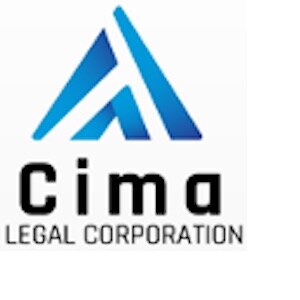Best Merger & Acquisition Lawyers in Quito
Share your needs with us, get contacted by law firms.
Free. Takes 2 min.
List of the best lawyers in Quito, Ecuador
About Merger & Acquisition Law in Quito, Ecuador
Merger and Acquisition (M&A) law in Quito, Ecuador, plays a critical role in facilitating business consolidations and expansions. As the capital city, Quito is a hub for economic activities and international business dealings. M&A processes in Ecuador are governed by a combination of local laws, regulatory frameworks, and international guidelines meant to ensure fair practices and protect stakeholder interests. The dynamic economic environment makes Quito a prospective location for M&A activities, offering opportunities for growth, market expansion, and investment.
Why You May Need a Lawyer
People and businesses may require legal assistance in Mergers and Acquisitions for several reasons, including:
- Due Diligence: Legal experts ensure thorough checks are conducted on potential investments to verify all information is accurate and entitled.
- Negotiations: Lawyers aid in structuring favorable terms for mergers or acquisitions, addressing complex legal and financial aspects.
- Compliance: To navigate and comply with the local and international legal regulations and avoid potential legal pitfalls.
- Documentation: Lawyers prepare and review essential legal documents, ensuring all contractual obligations are clear and enforceable.
- Dispute Resolution: Legal assistance is often crucial in resolving disputes that may arise during or after the transaction process.
Local Laws Overview
Local laws governing M&A in Quito, Ecuador, incorporate both national legal frameworks and local regulatory considerations. Key aspects include:
- Antitrust Laws: Regulations to prevent anti-competitive practices and ensure transactions do not create monopolies or limit market access.
- Foreign Investment Restrictions: Laws governing the extent of foreign investment permissible in various sectors, ensuring economic security.
- Corporate Governance: Specific provisions in the Ecuadorian Company Law that dictate how mergers and acquisitions must be conducted, including stakeholder approvals and public interest considerations.
- Environmental Regulations: Compliance with environmental impact assessments can be required, especially in resource-sensitive industries.
- Tax Implications: Understanding the tax consequences of mergers and acquisitions, including duties and potential benefits under Ecuadorian tax law.
Frequently Asked Questions
What are the key steps in the M&A process in Quito?
The process generally involves initial planning, due diligence, negotiation, agreement execution, and integration of the entities. Each step involves meticulous legal and financial considerations.
Are there specific industries that have special M&A regulations in Ecuador?
Yes, industries such as banking, telecommunications, and natural resources may have additional regulations due to their strategic importance and public interest concerns.
Can foreign companies acquire businesses in Quito?
Foreign companies can acquire businesses in Quito, but they must comply with local foreign investment and merger regulations, which may vary by industry.
What role does the Superintendence of Companies play in M&A activities in Quito?
The Superintendence of Companies oversees corporate mergers and acquisitions, ensuring legal compliance and protecting shareholder interests in Ecuador.
Do labor laws affect Mergers and Acquisitions in Ecuador?
Yes, labor laws are significant in M&A transactions. Acquiring companies must adhere to existing labor contracts and obligations to employees.
How long does the M&A process typically take in Quito?
The timeline can vary based on the complexity and scale of the transaction but generally ranges from several months to over a year, depending on regulatory approvals and negotiation scopes.
What documentation is essential for M&A transactions?
Important documents include due diligence reports, financial statements, merger or acquisition agreements, shareholder agreements, and regulatory filings.
What are the financial reporting requirements post-M&A in Quito?
Acquired or merged entities must adhere to Ecuadorian financial reporting standards, which may require consolidation of financial statements and regulatory compliance submissions.
Are there any mandatory disclosures for M&A transactions in Ecuador?
Regulatory bodies may require disclosures, especially for publicly traded companies, to ensure transparency and market fairness.
What happens if an M&A transaction faces legal challenges?
Legal challenges can result in delays or cancellations of transactions. Court cases or arbitration may be needed to resolve disputes, emphasizing the importance of robust legal agreements.
Additional Resources
Several resources can provide further assistance, including:
- Superintendence of Companies, Securities and Insurance: The main regulatory body for company M&A activities.
- Ecuadorian Bar Association: A valuable resource for finding qualified lawyers specialized in M&A law.
- Ecuadorian Chamber of Commerce: Offers insights into market conditions and networking opportunities for business transactions.
- Official Publications: Government and regulatory publications detailing new laws and legal interpretations.
Next Steps
If you require legal assistance for Mergers and Acquisitions in Quito, Ecuador, here are some steps to consider:
- Research: Begin by understanding the specific requirements of your M&A transaction and whether specialized legal expertise is necessary.
- Consultation: Schedule a consultation with a lawyer who specializes in M&A law to discuss your needs, options, and strategies.
- Documentation Preparation: Work with your legal team to arrange the necessary documentation and due diligence processes.
- Negotiation: Ensure your legal representative is involved in all negotiation stages to protect your interests and ensure compliance.
By following these steps, businesses and individuals can effectively navigate the complexities of M&A transactions in Quito, Ecuador, ensuring that their legal and financial interests are adequately protected.
Lawzana helps you find the best lawyers and law firms in Quito through a curated and pre-screened list of qualified legal professionals. Our platform offers rankings and detailed profiles of attorneys and law firms, allowing you to compare based on practice areas, including Merger & Acquisition, experience, and client feedback.
Each profile includes a description of the firm's areas of practice, client reviews, team members and partners, year of establishment, spoken languages, office locations, contact information, social media presence, and any published articles or resources. Most firms on our platform speak English and are experienced in both local and international legal matters.
Get a quote from top-rated law firms in Quito, Ecuador — quickly, securely, and without unnecessary hassle.
Disclaimer:
The information provided on this page is for general informational purposes only and does not constitute legal advice. While we strive to ensure the accuracy and relevance of the content, legal information may change over time, and interpretations of the law can vary. You should always consult with a qualified legal professional for advice specific to your situation.
We disclaim all liability for actions taken or not taken based on the content of this page. If you believe any information is incorrect or outdated, please contact us, and we will review and update it where appropriate.














